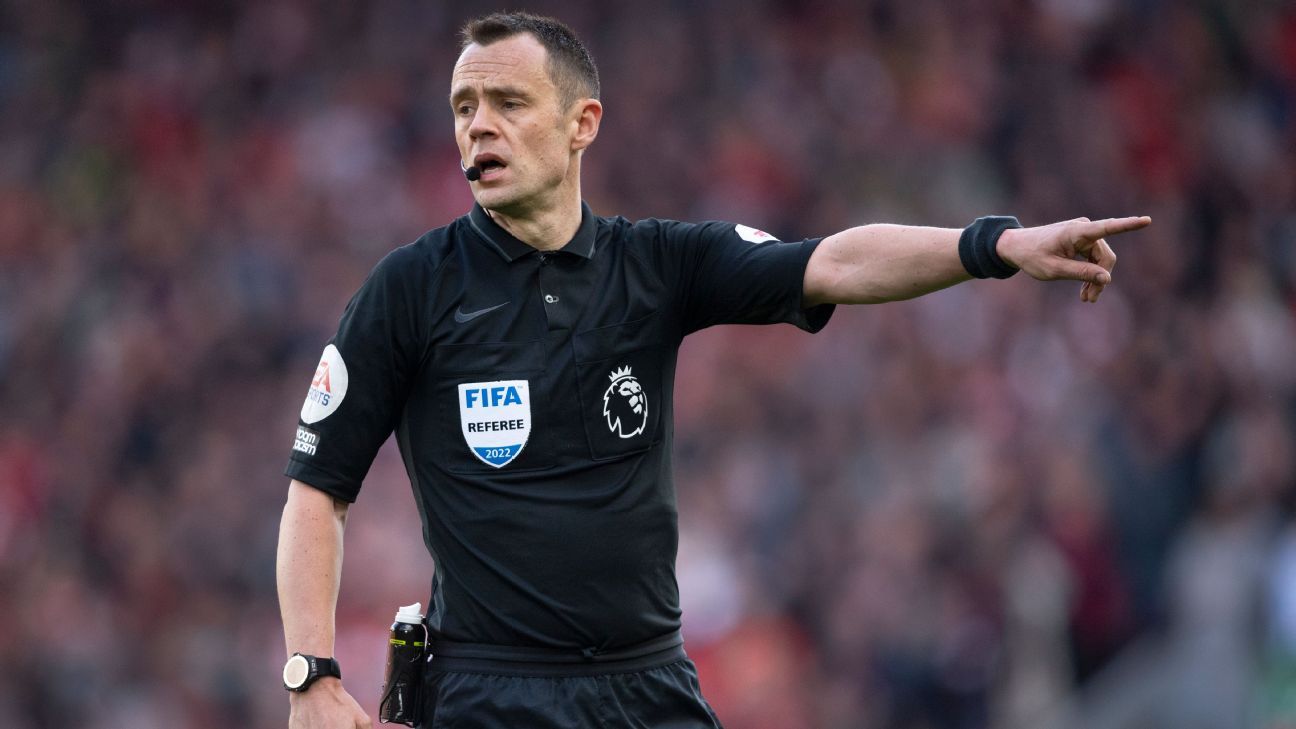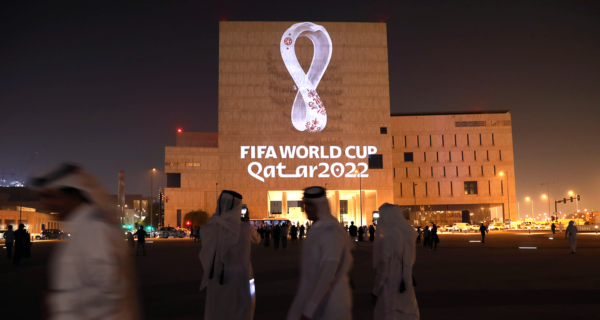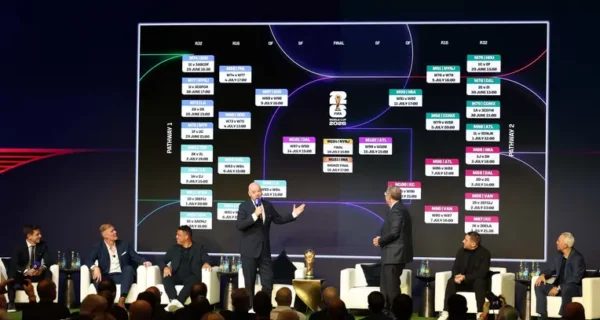FIFA World Cup referees earn substantial compensation for their crucial role in soccer’s biggest tournament. These officials make critical decisions that impact matches watched by billions of fans worldwide. Their payment structure includes both base salaries and match fees that reward experience and performance.
FIFA World Cup Referee Payment Structure
Referees at the World Cup receive compensation through a multi-tiered system. This structure ensures fair payment for the pressure and expertise required. FIFA has developed this system over multiple tournaments.
Base Salary
Every referee receives a guaranteed base payment for participating in the World Cup. This amount compensates officials for their preparation time and availability throughout the tournament. The base salary remains the same regardless of how many matches they officiate.
For the 2022 Qatar World Cup, main referees received a $70,000 base payment. This substantial amount recognizes the weeks spent away from home and the extensive preparation required. FIFA pays this amount to all selected main referees.
Assistant referees received a lower but still significant base payment of $25,000 for the tournament. This difference reflects the varying levels of responsibility between main and assistant officials. The base payment arrives before any matches take place.
Match Fees
Beyond the base salary, referees earn additional fees for each match they officiate. FIFA pays these amounts on top of the base payment. Match fees create an incentive system that rewards quality performance.
The payment scale increases dramatically for knockout stage matches. Group stage assignments pay $3,000-$5,000 per match for main referees. This jumps to $10,000 for knockout matches, including quarter-finals, semi-finals, and the final.
This escalating structure means referees who impress during early rounds can significantly increase their earnings. Officials selected for multiple matches throughout the tournament earn substantially more than those who officiate fewer games.
Different Roles, Different Pay
FIFA assigns different payment levels based on each official’s role and responsibilities. Main referees earn the highest amounts due to their ultimate decision-making authority. Other officials receive compensation appropriate to their supporting roles.
Assistant referees earn less than main officials but still receive substantial payments. Their match fees range from $2,000-$2,500 for group games and increase to $5,000 for knockout matches. Fourth officials receive similar compensation to assistant referees.
VAR (Video Assistant Referee) team members have their own payment structure. The main VAR official earns $3,000 per group stage match and $5,000 for knockout games. The complete VAR team includes multiple assistant VAR officials with specialized duties.
2022 Qatar World Cup Referee Salaries
The 2022 World Cup featured 36 main referees, 69 assistant referees, and 24 VAR officials from around the world. These officials shared in the largest referee compensation package in tournament history. Let’s break down exactly what they earned.
Main Referees
Main referees at Qatar 2022 started with the $70,000 base payment. This amount remained consistent with the 2018 World Cup in Russia. The real earning potential came through match assignments.
Each group stage match earned main referees an additional $3,000-$5,000. Officials selected to continue into the knockout rounds received $10,000 per match. This created significant earning potential for top-performing referees.
A referee who officiated multiple matches throughout the tournament could earn well over $100,000 total. The most successful referees who officiated several matches including late-stage knockout games potentially earned up to $300,000 for the tournament.
Assistant Referees
Assistant referees played essential supporting roles at the 2022 World Cup. Their base payment of $25,000 provided guaranteed compensation regardless of match assignments. This amount represented a significant increase from earlier tournaments.
For each group stage match, assistant referees earned an additional $2,000-$2,500. Their knockout match fees increased to $5,000 per game. An assistant who worked several matches throughout the tournament could earn $50,000 or more.
These substantial payments recognize the crucial role assistant referees play. They make critical offside calls and assist the main referee with decisions. Their expertise directly impacts match outcomes at the highest level of competition.
Fourth Officials
Fourth officials at the Qatar World Cup received compensation similar to assistant referees. They earned $2,500 for group stage matches and $5,000 for knockout round games. Their role involves managing substitutions and supporting the on-field officials.
Though less visible than the on-field referees, fourth officials perform essential tournament functions. They manage the technical area, check player equipment, and handle administrative tasks. FIFA compensates them for this important supporting role.
The fourth official must remain constantly alert throughout the match. They often step in if the main referee or assistants suffer injuries. Their compensation reflects this readiness and expertise.
VAR Officials
The 2022 World Cup featured an expanded VAR system with specialized roles. The main VAR official received $3,000 per group stage match and $5,000 for knockout games. A full VAR team included multiple officials with different responsibilities.
The VAR team consisted of the main VAR plus three assistant VARs with specialized duties. Each team member focused on different aspects of play. Together they ensured accurate video review of potential match-changing incidents.
VAR officials working throughout the tournament could earn up to $175,000 total. This substantial amount reflects the technical expertise required for video review decisions. The VAR team faces intense pressure to make correct calls quickly.
How World Cup Referee Pay Has Changed
FIFA has steadily increased referee compensation over successive tournaments. This upward trend reflects both inflation and the growing importance of quality officiating. Let’s examine how payment structures have evolved.
Historical Pay Rates
In the 2014 World Cup, main referees received a base payment of $50,000. This amount represented a lower figure than current standards. Match fees also followed a different structure with lower per-game payments.
By the 2018 World Cup in Russia, FIFA had increased the base payment to approximately $70,000 (57,000 euros). Match fees stood at about 2,500 euros per game. This marked a significant increase from previous tournaments.
The upward trend demonstrates FIFA’s recognition of referee importance. Professional officiating requires extensive training, experience, and commitment. FIFA’s increasing payments reflect this growing acknowledgment.
Comparison Between Recent World Cups
The 2022 Qatar World Cup maintained the $70,000 base payment established in 2018. However, match fees increased, particularly for knockout rounds. This created potential for higher total earnings than in previous tournaments.
The payment structure for assistant referees, fourth officials, and VAR team members also became more formalized. Earlier tournaments featured less structured compensation for supporting officials. The 2022 World Cup established clear payment tiers.
This evolution shows FIFA’s commitment to professional officiating. Each successive tournament has improved the compensation structure. This trend will likely continue for future World Cups as officiating becomes increasingly professional.
How World Cup Pay Compares to Other Leagues
World Cup referee payments exceed what most officials earn in domestic leagues. However, top European leagues also offer substantial compensation. These amounts vary significantly across different competitions.
European League Referee Salaries
Premier League referees earn approximately £90,000 ($96,000) annually as a base salary. They also receive £1,500 per match. This creates potential annual earnings around £110,000 for officials who regularly work matches.
La Liga in Spain offers the highest referee salaries in Europe. Officials there earn about €12,500 monthly plus €4,200 per match. This creates potential annual earnings around €250,000 ($219,000) for top referees.
Other major European leagues pay less than England and Spain. Italian Serie A, German Bundesliga, and French Ligue 1 offer professional-level salaries but at lower rates. European referee pay generally exceeds what officials earn in other parts of the world.
Champions League Officials
UEFA Champions League matches provide lucrative opportunities for top referees. Officials earn approximately €7,000 ($6,147) per Champions League match. This represents a significant bonus beyond domestic league compensation.
European referees can substantially increase their annual earnings through Champions League appointments. The most respected officials might work several Champions League matches per season. This supplements their domestic league income.
The Champions League per-match fee approaches World Cup knockout match rates. However, the World Cup’s base payment and multiple match opportunities make it potentially more lucrative overall. Both represent premium officiating opportunities.
MLS and Other Leagues
Major League Soccer (MLS) pays referees significantly less than European leagues or international tournaments. MLS referee fees range from $565-$875 per match depending on experience level. Top earners make around $55,000 annually.
Lower-tier leagues around the world offer even smaller compensation. Many leagues outside Europe pay semi-professional or even amateur rates. This creates a vast global disparity in referee compensation.
This stark difference highlights the economic gap between established European leagues and developing competitions. MLS referee pay resembles semi-professional compensation rather than the professional-level salaries of European officials.
What Affects Referee Compensation
Several factors determine how much a World Cup referee ultimately earns. Experience, performance, and match assignments all play crucial roles. The payment system rewards officials who demonstrate excellence.
Experience and Status
FIFA referees with international experience generally receive more match assignments. Those with FIFA badges and extensive international backgrounds often officiate the most important matches. This directly affects their total compensation.
Referees like Stephanie Frappart, who made history officiating men’s World Cup matches, represent the elite level. These top-tier officials typically work multiple matches, increasing their total tournament earnings.
FIFA considers referee performance in continental competitions when making World Cup selections. Officials who excel in Champions League, Copa Libertadores, or Asian Champions League matches earn consideration for World Cup appointments.
Number of Matches Officiated
The total matches a referee works dramatically impacts overall earnings. Most officials work an average of two matches during the tournament. However, top-performing referees may receive additional assignments.
Referees eliminated early from consideration earn only their base pay plus minimal match fees. Those selected for multiple matches, especially knockout rounds, can more than double their base compensation through match fees.
FIFA evaluates referee performance after each match. Officials who demonstrate accuracy, consistency, and good match management receive consideration for additional games. This performance-based system directly impacts earnings.
Tournament Stage
The tournament stage greatly affects per-match payments. Group stage matches pay significantly less than knockout rounds. The semi-finals and final offer the highest per-match compensation.
Referees selected for the final and semi-finals earn the highest total amounts. These prestigious assignments come with both higher payment and greater recognition. Only the most respected officials receive these opportunities.
The escalating payment structure creates substantial financial incentives. A referee selected for knockout matches earns substantially more than one who only officiates group games. This system rewards quality and consistency.
Frequently Asked Questions
1. How much did referees earn at the 2022 Qatar World Cup?
Main referees at the 2022 World Cup received a $70,000 base payment plus $3,000-$5,000 per group stage match and $10,000 per knockout match. A referee who officiated multiple matches including knockout rounds could earn over $100,000 total.
2. Do assistant referees earn the same as main referees?
No, assistant referees earn less than main referees. At the 2022 World Cup, assistant referees received a $25,000 base payment plus $2,000-$2,500 per group stage match and $5,000 per knockout match.
3. How much do VAR officials get paid at the World Cup?
VAR officials at the 2022 World Cup earned $3,000 per group stage match and $5,000 per knockout match. A VAR official working throughout the tournament could potentially earn up to $175,000 including their base payment.
4. Has World Cup referee pay increased over time?
Yes, World Cup referee pay has increased over time. In 2014, referees received a $50,000 base payment. This increased to approximately $70,000 by the 2018 World Cup in Russia, with match fees also rising over successive tournaments.
5. How does World Cup referee pay compare to Premier League officials?
World Cup referees can earn more in a single tournament than Premier League referees make annually. Premier League officials earn approximately £90,000 base salary plus £1,500 per match (about £110,000 annually).
6. Which league pays referees the most?
Spain’s La Liga pays referees the most among domestic leagues. La Liga officials earn approximately €12,500 monthly plus €4,200 per match, potentially reaching €250,000 annually for top referees.
7. Do female referees earn the same as male referees at the World Cup?
Yes, female referees earn the same as their male counterparts at the World Cup. The payment structure remains identical regardless of gender, with the same base payments and match fees for all officials.
8. What additional benefits do World Cup referees receive?
Beyond monetary compensation, World Cup referees receive additional benefits including Adidas equipment, training kits, and in 2022, a $5,000 Hublot watch. They also receive accommodations, meals, and transportation during the tournament.
9. How much could a referee earn if they officiated the World Cup final?
A referee who officiated multiple matches including the World Cup final could potentially earn up to $300,000 for the tournament. This would include their $70,000 base payment plus all accumulated match fees.
10. How does World Cup referee pay compare to MLS officials?
World Cup referee pay far exceeds MLS compensation. Top MLS referees earn around $55,000 annually, with per-match fees ranging from $565-$875. A World Cup referee could earn several times this amount from a single tournament.












